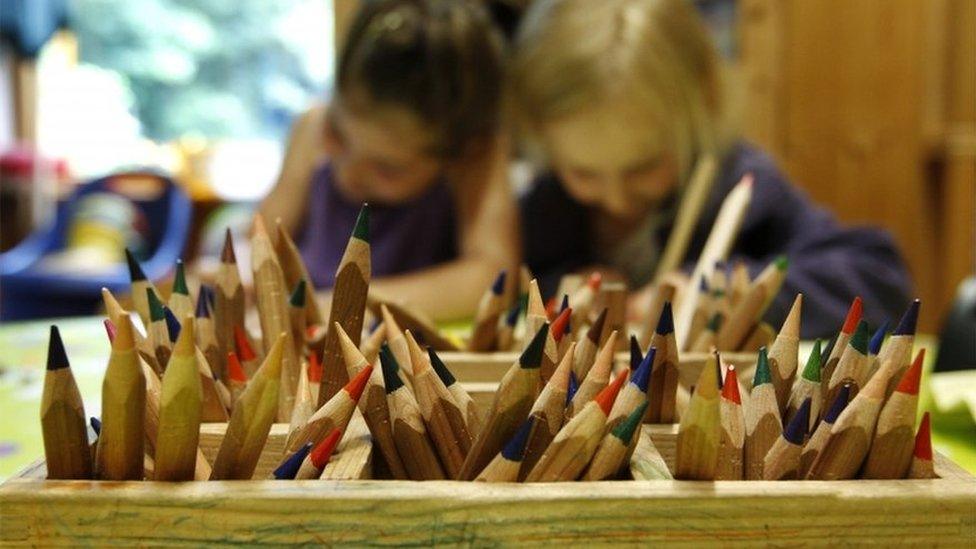Is Britain’s class gap finally starting to narrow?
- Published
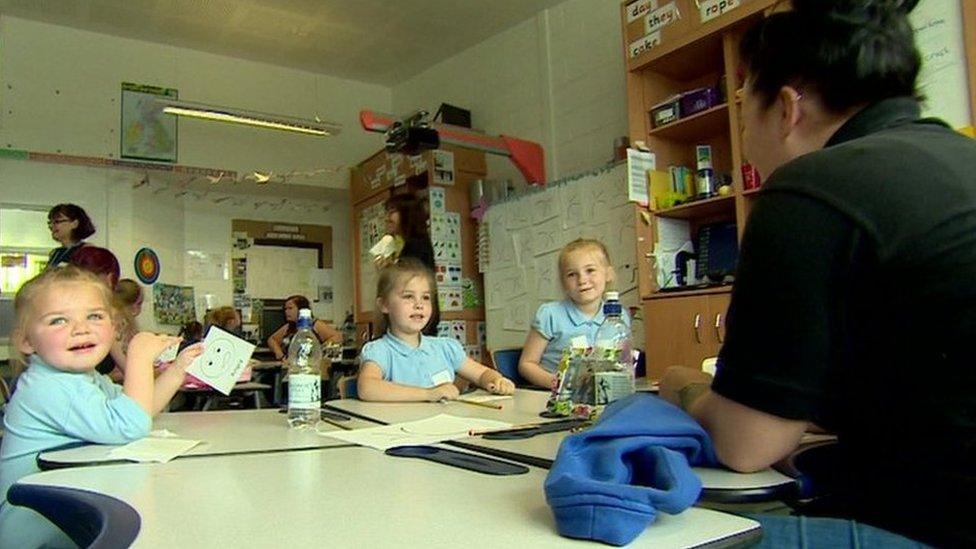
Parents are encouraged to work with their children at Sheffield's Watercliffe Meadow Community Primary School
Government advisers on social mobility say there are encouraging signs that in key areas, the gap between rich and poor children in Britain is narrowing.
A report for the Social Mobility Commission, external notes that "the trends are positive even in the most disadvantaged social classes", with parents from all backgrounds becoming more involved in their children's development and education.
Thursday's report was prompted by alarming research from the US which suggests the gap between children from well-educated and poorly educated families is widening. World-renowned social scientist Robert Putnam has claimed the American Dream is in crisis.
Progress on social mobility 'too slow'
Can social mobility work in a selfie culture?
Can we stomach downward social mobility?
But when academics from Oxford University applied similar tests to the experience of children in the UK, they found a very different story.
"The picture in the UK does not look as bleak as in the USA," the report states. "While we do find inequalities and areas of concern, there are also areas of children's lives in the UK where we see both improvement and narrowing inequalities."
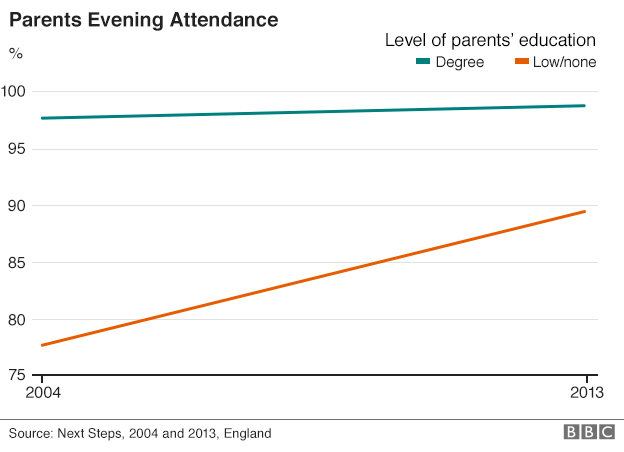

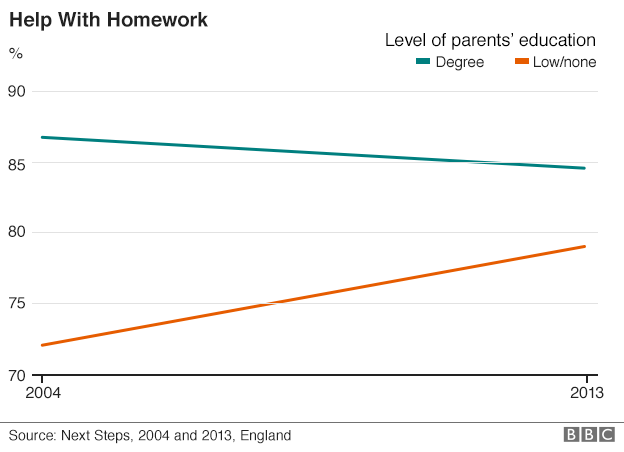
Across the UK, children from the poorest fifth of households are already a year behind the richest fifth by the age of five. Experts say that is because parents in wealthier homes give their children more developmental support in the early years.
The Social Mobility Commission finds encouraging increases in such support across all backgrounds, with the gap between rich and poor narrowing in many of them.
Key measures of developmental support include parents helping with and checking their children's homework. In both of these, the figures are improving and the gap between low and highly educated parents is narrowing.
It is the same story with parents turning up at their children's parents' evenings. However, there are still some areas where the gap between rich and poor is widening.

Gruffalo time: a shorthand for the amount of quality time parents spend with their children
The researchers refer to a measure called "Gruffalo time", a reference to the famous children's book which has become shorthand for parents reading, talking and playing with their children.
This shows that in the mid-1970s parents spent around 23 minutes a day of quality time with their children.
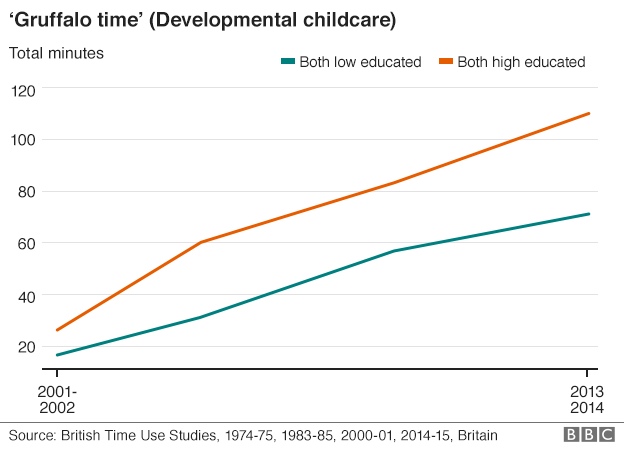
Now it has risen to 80 minutes, but the gap between "high-educated" and "low-educated" parents appears to be widening. Children whose parents have few qualifications get almost 40 minutes less Gruffalo time than those whose parents have high qualifications.
"We should not perhaps be too perturbed by some of the widening class inequalities - provided there is evidence of positive change in all sections of society," the report states. "To be sure, we should not be complacent, but the trends are positive even in the most disadvantaged social classes."
The extra support children are receiving from parents of all backgrounds may partly explain some positive findings on behaviour.
With truancy, under-age drinking and smoking all on the decline, the evidence suggests an improving picture overall - with the gap between children from low and high educated families narrowing.
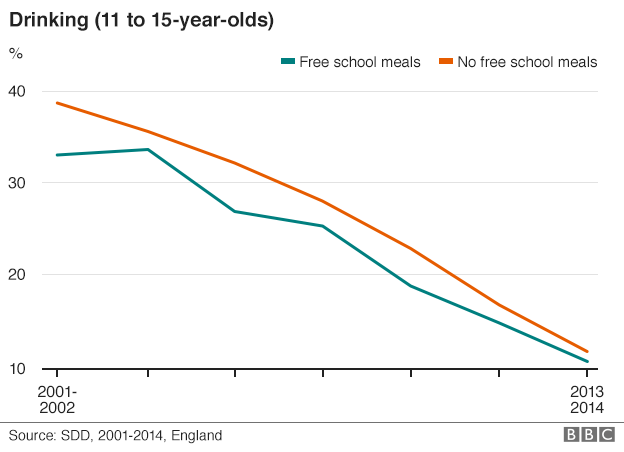
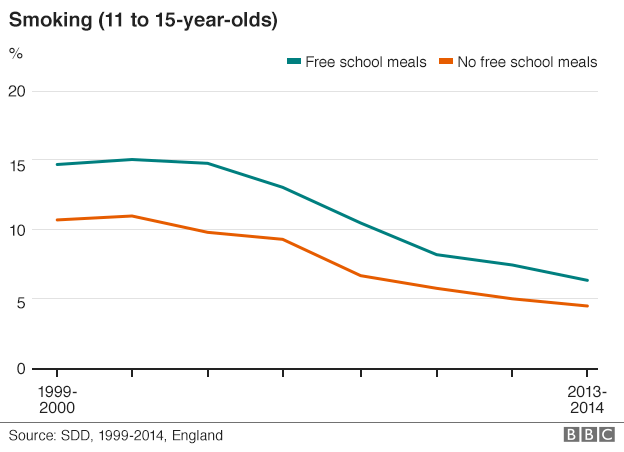

A generation ago many parents would have regarded the way they bring up their children as an entirely private matter and seen parenting support as an unwelcome intrusion.
Today, parents from all backgrounds seem to have taken on board the importance of supporting children in their development.
"Mothers reading to their children has increasingly become the norm throughout society," the new report notes. "The middle classes appear to have led the way, and these practices have spread throughout all sections of society as they became more and more prevalent."
There are still some areas of children's development where the gap between rich and poor remains worryingly large. The researchers note that while 84% of children from middle-class homes go to art galleries, the figure is 51% among poorer families.
However, the Social Mobility Commission report does suggest that the quality of parenting and of children's behaviour in the UK is generally improving and the gap between rich and poor is narrowing in key areas.
It is a very different story from the US.
- Published17 December 2015
